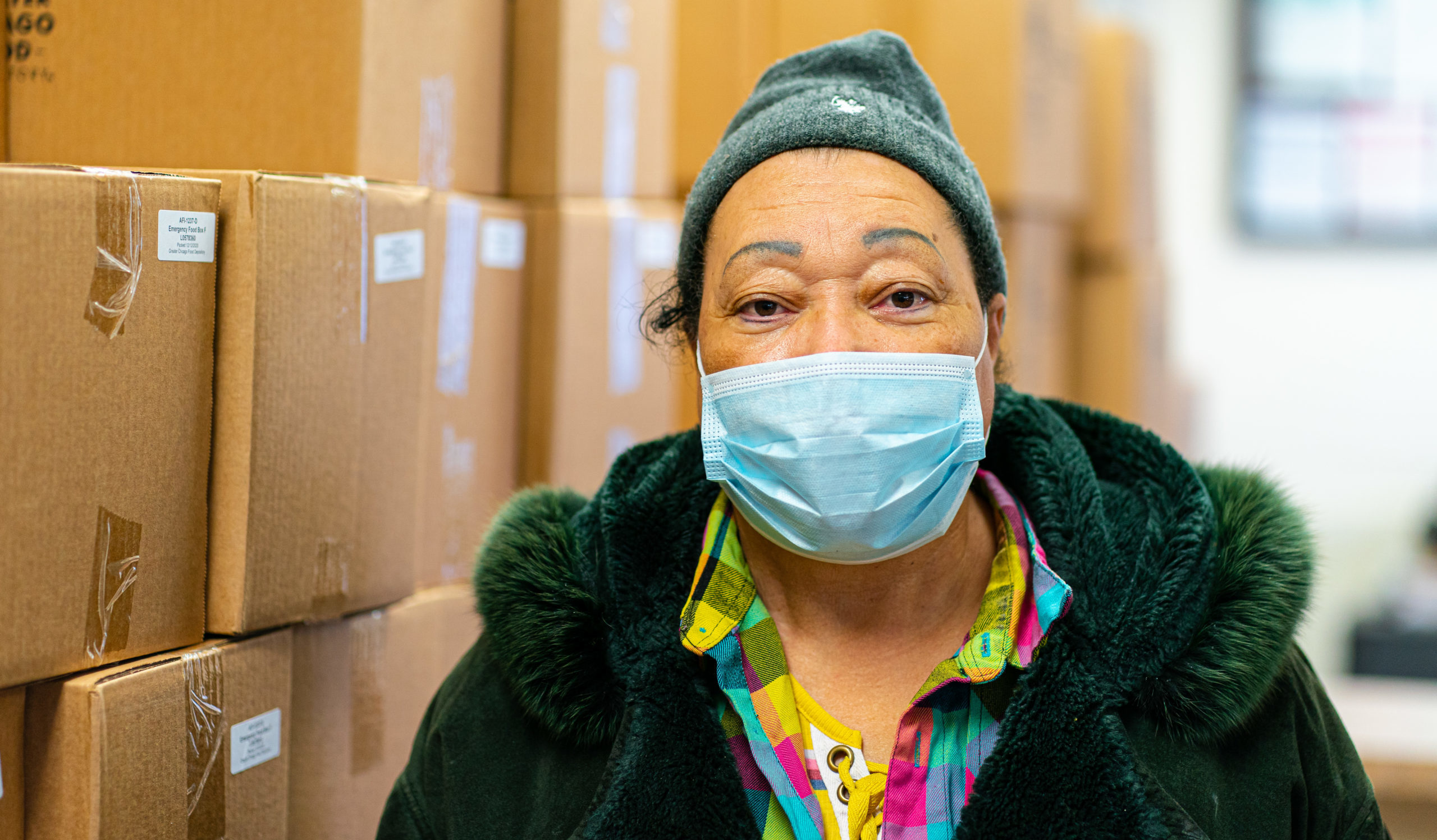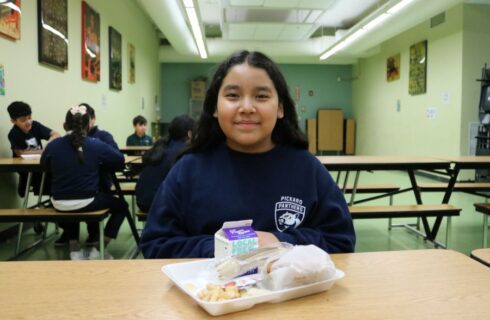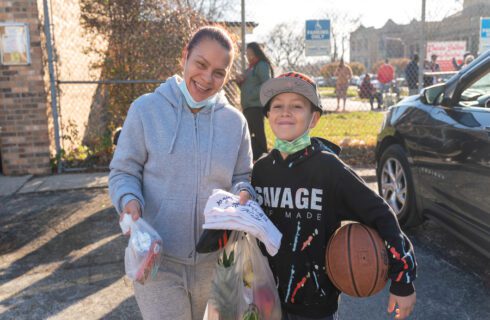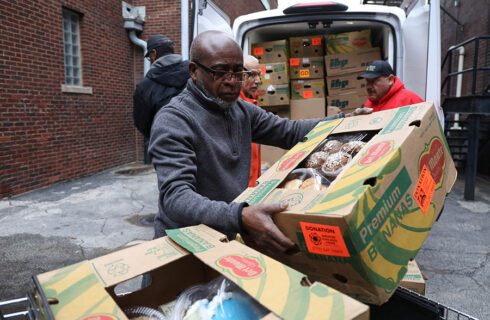As a retiree on a fixed income, Marya Broadway worries about balancing the bills.
A New Orleans native, Broadway has lived in Chicago’s Roseland neighborhood for nearly three decades. She retired from the Social Security Administration about three years ago.
She receives her own monthly social security retirement benefits, but money’s still tight.
“I’ve got rent, electric bill, gas bill, water bill, car insurance, house insurance – it doesn’t always cover,” said Broadway, 68.
Each week, about 150 visitors like Broadway visit the Far South Side pantry – an old restaurant building that the Sheldon Heights Church of Christ has remodeled into a community food hub.
The Sheldon Heights pantry, a Food Depository community partner, is one of 26 sites receiving a collective $2.6 million in grants designed to expand food access in primarily Black and Latino neighborhoods across Cook County, which have been disproportionately impacted by the COVID-19 pandemic. The grants will open new food pantries and, in Sheldon Heights’ case, transform its existing operation.
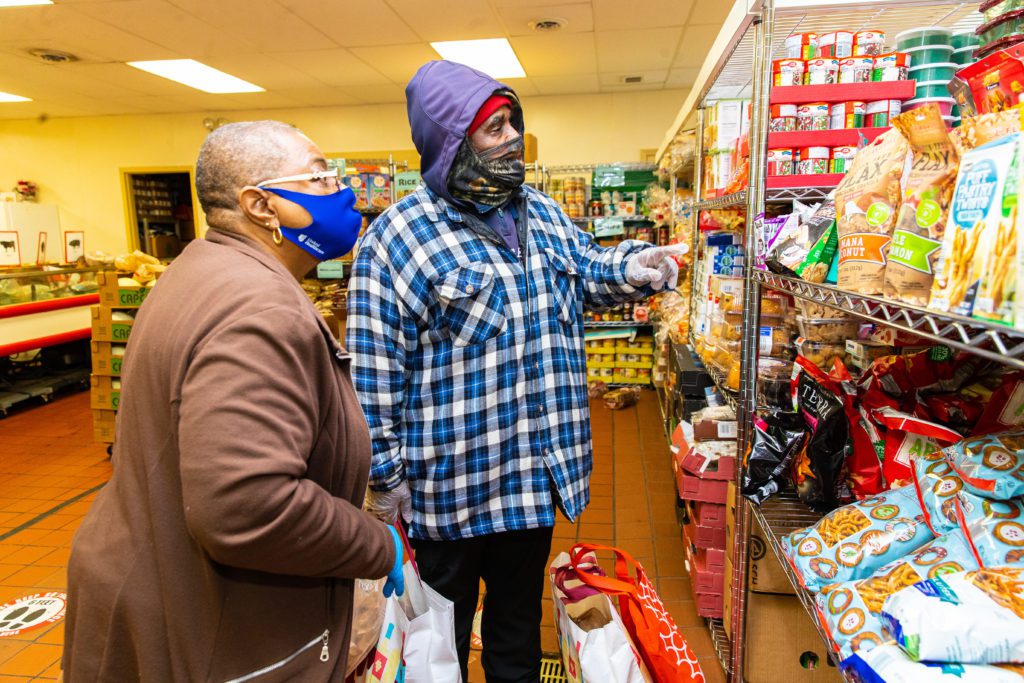
A Sheldon Heights food pantry volunteer helps guest Nathan Crosby select groceries.
These improvements will not only expand its serving hours, but also awareness among its neighbors, said coordinator Eric Clark.
“I think the biggest thing for this community and our clients is just the reassurance that there’s always somewhere they can go get food,” Clark said. “And not just food, but quality food.”
For Broadway, the food also helps feed her daughter and grandchildren, who live with her.
At Sheldon Heights, she’s able to choose from the stocked shelves of fresh produce, meat and other essentials in order to prepare meals for her and her family.
“It really helps out,” she said.
Eliminating the ‘stress of food’
The pandemic has meant devastating personal losses for the guests of the Sheldon Heights pantry. Many have lost family members and other loved ones to COVID-19, according to Wonda Hall, one of the volunteers who oversees the weekly distributions. It has also brought new faces to their doors, some of whom have never visited a pantry before but stop when they see the line outside.
In this time of crisis, Hall, a retired CTA bus driver, and the other volunteers are passionate about helping their neighbors.
“You think about the people depending on you to be there,” said Hall, 69. “So I think that’s what keeps us going.”
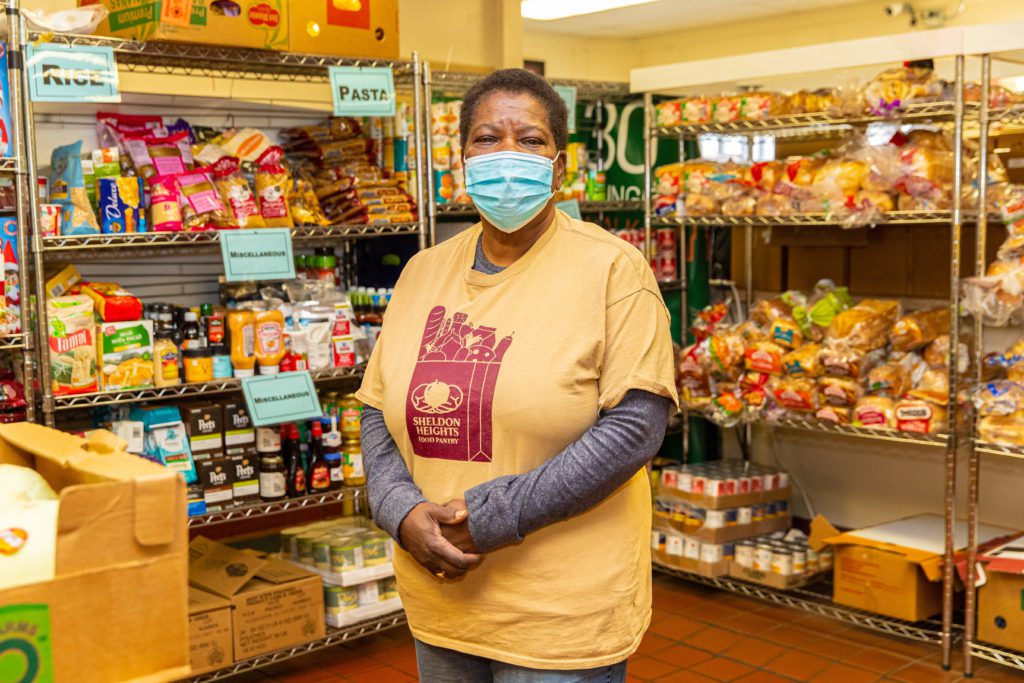
Wonda Hall, a volunteer leader at the Sheldon Heights food pantry.
Tonika Williams, a mom of three from Roseland, recently started visiting the pantry. She lost her job working at a day care when the pandemic hit.
It’s been a difficult time for her family, especially for her youngest daughter, who is five and had to start kindergarten virtually this year. Places like Sheldon Heights allow her to balance her resources.
“You just have to stay prayerful,” Williams said about how she and her family have been managing through this crisis. “We look forward to different places like this to help us make ends meet so we feel like we have a full meal. And not only that, I can take my money and put it toward something else now – instead of the stress of the food.”
Other visitors, like Charles White, have been turning to the pantry long before the pandemic. White, who used to work in railroad crew transportation, was in a car accident back in 2012. He still suffers from injuries sustained in the head-on collision.
White, 59, has disability benefits that help support him. He’s also enrolled in the Supplemental Nutrition Assistance Program (SNAP) to help with groceries. The pantry supplements those benefits and helps feed White and his two elderly cousins, with whom he lives.
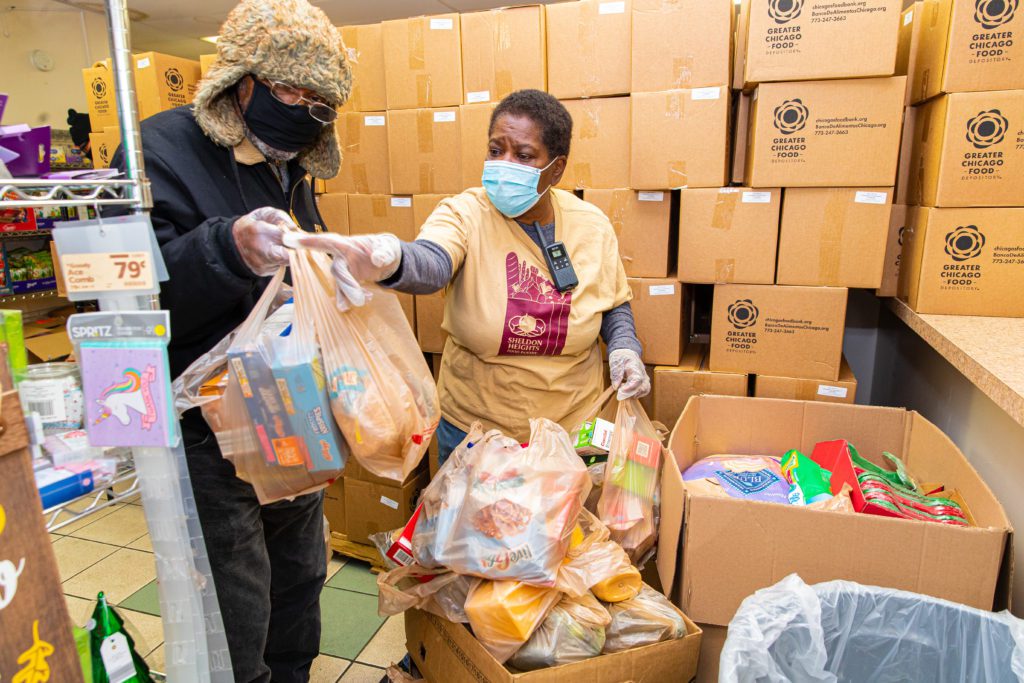
Charles White (left) organizes his groceries after going through the Sheldon Heights food pantry
It’s been a big help, he said, especially after a recent cut in his SNAP benefits.
“Without the pantry it would’ve been very difficult,” he said. “We would’ve probably gone hungry.”
Improvements ahead
The upcoming grant funding will support across-the-board improvements for Sheldon Heights’ facility, according to Clark. They will be able to install a walk-in freezer, replacing the nearly 20 small-scale fridges and freezers they currently use for food storage. This additional cold storage space will save them thousands of dollars a year in electric bills.

Pantry coordinator ErIc Clark (courtesy photo)
They also want to invest in a new sign. The old restaurant’s sign still stands next to the building, sometimes causing confusion for passersby.
But the project he and the team are most excited about is building a canopy to cover guests as they wait in line outside. Dozens of guests stood in the snowfall on a recent distribution day in late January, as the city experienced a series of its worst winter storms in years.
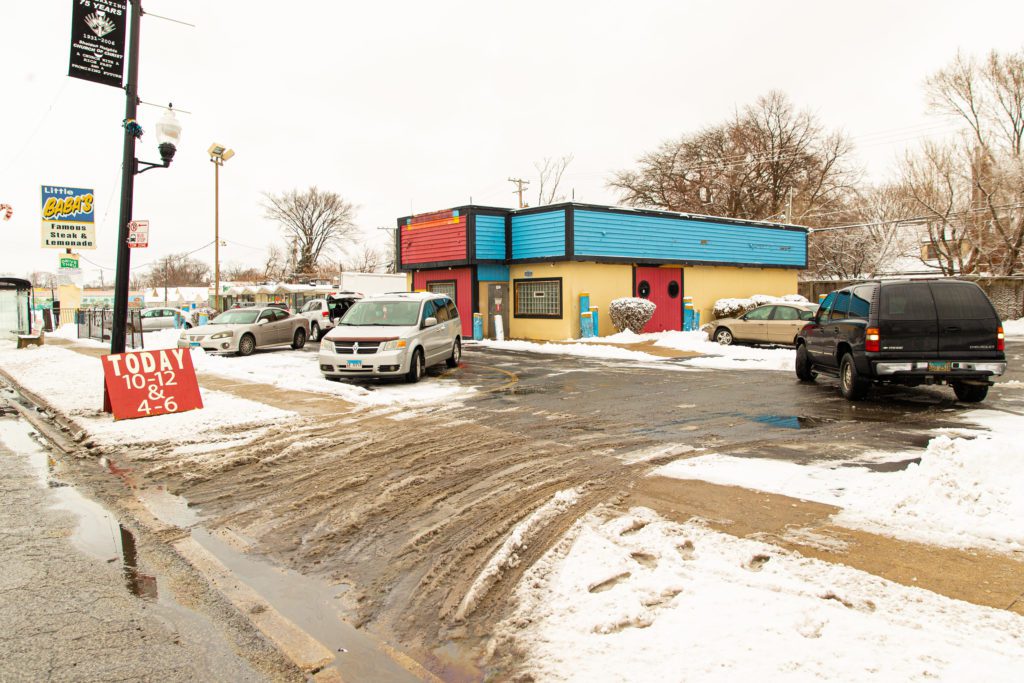
The exterior of the Sheldon Heights food pantry on a distribution day in January 2021. With new grant funding, pantry leaders hope to install new, permanent signage and a canopy on the side of the building to protect visitors from the elements as they wait in line.
“They stand there in the rain, the snow, in the cold, in the heat,” Hall said. “So we’re trying our best to do something to let them know we not only care about giving you the food. We want to make sure you’re safe, too.”
These improvements will not only enable them to add an extra distribution day each week, but also their profile, and in turn reach more people, Clark said. The pantry faces one of the longest streets in Chicago, Halsted Street. He knows countless people pass by every day – those who live in the neighborhood and others just passing through – and may not realize what they have to offer.
“I want to make sure the people driving down Halsted know they can come here and get some food,” Clark said.
Learn more about the Food Depository’s latest round of partner grants
Share This Post

